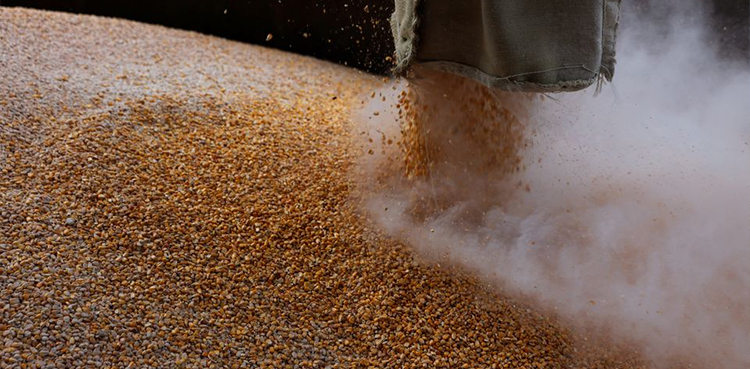
Ukraine and Poland on Monday began talks aimed at reaching an agreement after Warsaw banned Ukrainian grain imports, a decision deemed “unacceptable” by the European Union.
Ukraine’s grain exports have transited through the EU to other countries since the war-torn nation’s traditional Black Sea routes were blocked by Russia’s invasion.
Neighbouring European states have seen an increase in the arrival of maize, wheat and sunflower from Ukraine, causing silos to fill and driving down local prices — leading to farmers’ protests and the resignation of the Polish agriculture minister.
Food safety concerns have also been raised.
Hungary and Poland banned imports of grain and other food from Ukraine over the weekend. On Monday Slovakia joined them.
“Negotiations between Ukraine and Poland on exports and transit of Ukrainian agricultural production to and through Poland are still ongoing and will continue tomorrow,” Ukrainian agriculture ministry spokeswoman Tetiana Lupova told AFP.
The European Union’s executive arm denounced the bans imposed by Hungary and Poland.
– ‘Difficult negotiations’ –
“It is important to underline that trade policy is of EU exclusive competence and, therefore, unilateral actions are not acceptable,” spokeswoman Miriam Garcia Ferrer said in Brussels.
“In such challenging times, it is crucial to coordinate and align all decisions within the EU,” she added.
In May 2022, the European Union suspended customs duties on all products imported from Ukraine for one year and organised to allow Kyiv to export its grain stocks after the closure of the Black Sea shipping lanes following Russia’s invasion.
According to Polish media, talks between a Ukrainian delegation, led by Economy Minister Yulia Svyrydenko and Polish officials took place in Warsaw on Monday.
The previous day Ukraine’s agriculture minister Mykola Solsky said he expected “difficult negotiations” on the foodstuffs import issue.
The ban on Ukrainian grain imports “makes it more difficult” to achieve “a common victory”, he added.
In Poland the ban will apply to imports of grain, sugar, meat, fruits and vegetables, milk, eggs and other food items.
The Hungarian agriculture ministry said grain, oilseeds and several other agricultural products would be banned.
– ‘Difficult situation’ –
Slovakia on Monday announced its own ban, which will apply to various products including grain, sugar, fruits and vegetables, wine and honey.
Slovakia’s Agriculture Minister Samuel Vlcan told journalists that the ban, to come into effect on Wednesday, is designed to protect the local farming sector as well as consumer health.
Last week his ministry said it had analysed a sample of Ukrainian grain and detected “the presence of a pesticide, which is not authorised in the EU and has a negative impact on human health.”
Ukraine’s agriculture ministry said on Saturday that it “regrets” Poland’s ban.
“Polish farmers are facing a difficult situation, but we emphasise that Ukrainian farmers are facing the most difficult situation,” it added in reference to the war.
Last month, Brussels proposed to draw 56.3 million euros ($61.5 million) from the EU’s agricultural crisis reserve to support destabilised farmers in Bulgaria, Poland and Romania.
But five member states — Bulgaria, Hungary, Poland, Romania and Slovakia — have asked for additional aid.
from ARY NEWS https://ift.tt/jcRMu6d


